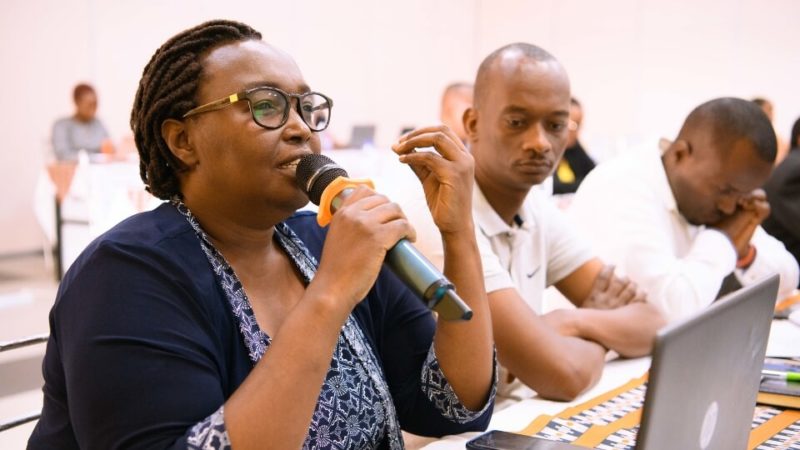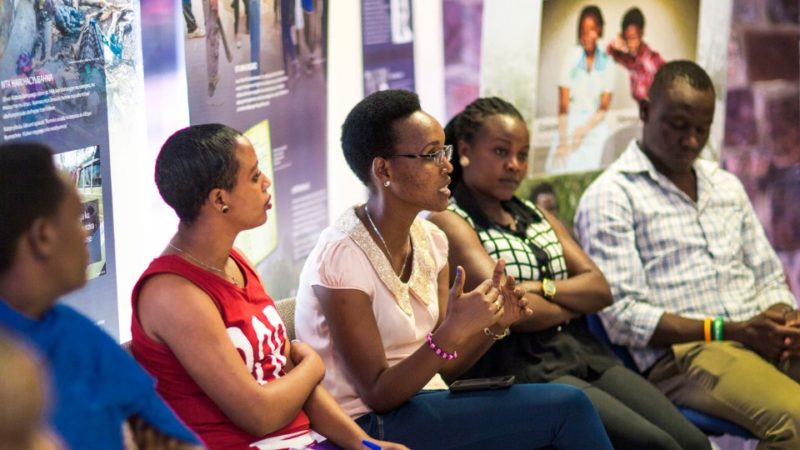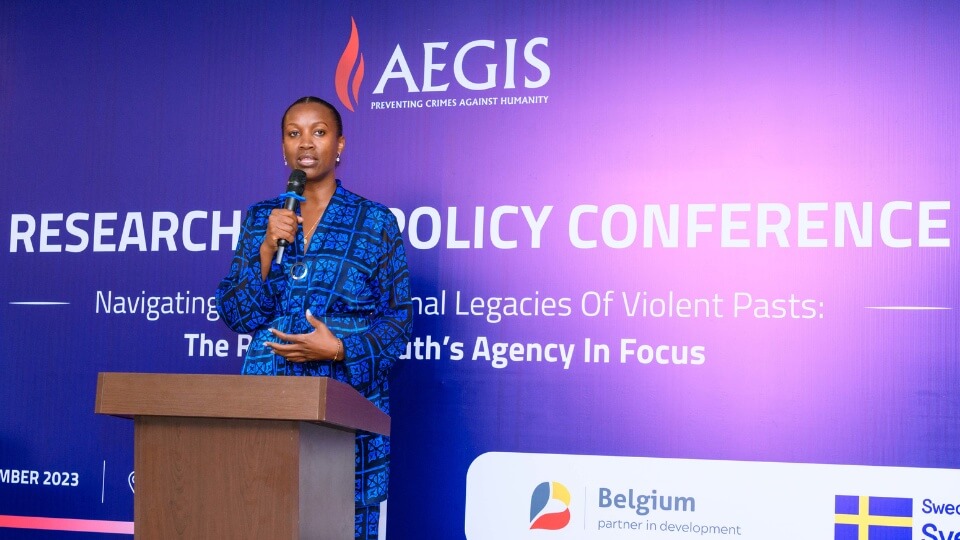

Aegis strengthens Rwandan research capacity
In a two-day workshop in Kigali on 5th and 6th December, over seventy researchers gathered to exchange insights on ‘The Fundamentals of Social Science Knowledge Production, Dissemination and Uptake’. Organized by the Research, Development and Policy Engagement department of the Aegis Trust, the workshop was intended to help strengthen the capacity of Rwandan researchers, policymakers, and practitioners in the journey of informing policy and practice on peacebuilding and genocide prevention in Rwanda and beyond by producing requisite evidence.
Through interactive sessions and practical exercises led by experienced researchers, participants were equipped with an understanding of the tools, methodologies and processes crucial for production of high-quality research with the potential to positively impact policy making in Rwanda.
Dr Felix Ndahinda, Aegis Trust’s Research Advisor, ran an interactive session focused on understanding and contextualizing research in social sciences. “It is true that research requires a lot of resources, and these are mostly rare,” he commented. “It is why we need to have these capacity-building workshops in order to enhance the skills of researchers, help one another to select the best ideas and think on ways through which we can create grant schemes to fund our work as researchers.”
“I was very excited to hear about this workshop as a grantee of Aegis Trust,” commented Evariste Manirakiza, an assistant lecturer at the University of Rwanda, College of Arts and Science at the Huye campus. “I am currently carrying out research on the community participation in ‘Umugoroba wa Imiryango’ or ‘Parents Evening Forum’ and am now collecting data,” he said. “I attended this workshop hoping to get more insight on how to carry out research specifically in collecting and analyzing data, as well as writing research papers, and I’m very pleased that we have been able to go over these aspects.”
At the end of the workshop, participants were encouraged to continue pursuing their quest for knowledge and their desire to contribute to academia and the progress of Rwandan society.
“I am excited to see the kind of research proposals you will come up with and the studies you will conduct using what you have learned here,” Dr Felix said in his closing remarks. “The key to good research is reading what has already been done, and having a grasp of the reality of the subject you are researching. Thank you for your attention, and willingness to learn these past two days.”


